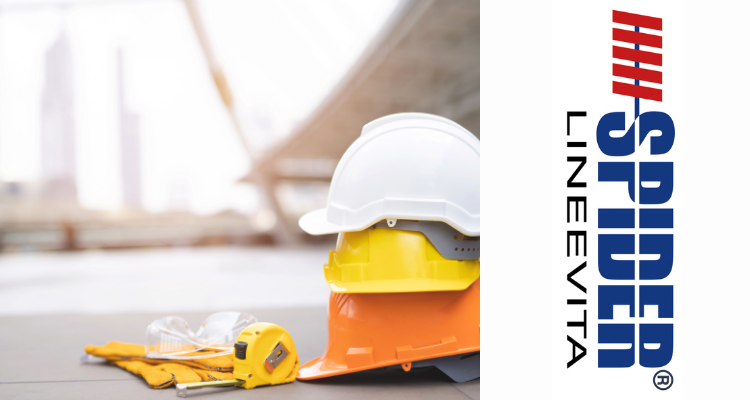
The reform of the decree law of 21 October, n 146 has changed and rewritten many parts and articles of the D.Lgs 81/2008. In fact, thedecree in force since 21 ô December 2021 introduces numerous new provisions concerning health and safety in the workplace.
The National Labour Inspectorate with new competences
By restoring in fact the fullness of the inspection powers in the field of health and safety, a reform of the inspection system is placed in a transparent manner: ô with the new rule, the inspection activity is carried out with equal powers and attributions by the local health authority competent for the territory and by the National Labor Inspectorate through its territorial offices.
With Circulars 3 and 4 ô of 2021, the INL has defined the operating methods with which the inspectorate will face the new supervisory tasks in the field of health and safety.
Mandatory identification of the Person in charge and mandatory supervision
The figure of the person in charge, with the integration of art. 18 of Legislative Decree 81/2008,must be formally integrated, with a written appointment, for the performance of activities aimed at supervision as indicated by art. 19 of the Consolidated Law.
The collective agreements of reference, if any, may establish the quantification of the remuneration due to the person in charge. In addition, the person in charge may not suffer any prejudice to the performance of his activity.
The obligations indicated above also apply to those activities carried out in the procurement and subcontracting system, where the responsibility for appointment, for example, applies to the respective employers with a communication to the client. In case of omission of the aforementioned obligations you will face criminal penalties that provide for the arrest of two to four months or a fine that would range from ô 1500 to 6000 euros.
But there are also news and criminal sanctions for those in charge if in fact there is a failure to carry out their exercise, or intervention,providing the necessary information in order to correct behaviors that do not comply with the safety rules ô implemented in theworkplace.
Here is an extract of the duties of the Supervisor described inArticle 19, paragraph 1:
“… supervise and supervise the observance by individual workers of their legal obligations, as well as with the company’s provisions on health and safety at work and the use of collective means of protection and personal protective equipment made available to them and, in the event of detection of conduct that does not comply with the provisions and instructions given by the employer and managers for the purposes of collective and individual protection,ô intervene to modify the non-compliant behavior by providing the necessary safety indications. In case of non-implementation of the instructions given or persistence of non-compliance, interrupt the activity of the worker and inform the direct superiors…”
Training workers-supervisors-managers-employers
In the field of training, two innovations are fundamental:
Adequate and specific training of employers (already provided for managers and supervisors) becomes mandatory.
Paragraph 7 of Article 37 ô now establishes that in addition to managers and supervisors, employers also receive adequate and specific training and periodic updating, depending on the work and tasks performed, in the field of health and safety: an agreement is expected by 30 June 2022, by the permanent conference state Regions and autonomous provinces of Trento and Bolzano,ô which will identify the duration, minimum contents and modalities of the mandatory training to be paid by the employer.
The training will be subject to checks, during the performance of the work, to evaluate its effectiveness
In addition, paragraph 7-terô specifies the following:
“Toensure the adequacy and specificity of the training as well as the periodic updating of those in charge pursuant to paragraph 7, the related training activities must be carried out entirely in person-to-face manner and must be repeated at least every two years and in any case whenever it is necessary due to the evolution of risks or the onset of new risks.”
Training
The standard on specific safety training for its employees reads as follows:
“Training is carried out by an experienced person and in the workplace. The training consists of the practical test, for the correct and safe use of equipment, machines, plants, substances, devices, including personal protection; the training also consists of the applied exercise, for safe working procedures. The training interventions carried out must be traced in a special register also computerized”
While with regard to the training part of employers we refer to what is described above with reference to paragraph 7 ô and subsequent reference to paragraph 2,second period of the same.
Mandatory suspension of individual entrepreneurial activity in the case of undeclared/insecure work
To combat irregular and insecure work, amendments have been made to Article 14 of Legislative Decree 81/2008 and related reformulation of Annex I, thus expanding the cases of suspension of activity.
Suspension of activity in case of:
It should always be borne in mind that the conversion law stipulates that the employer is always obliged to pay integrale the remuneration and related contributions of ô occasional employees or not removed fromtheworkplace.
Relaunching the role of Joint Bodies
With regardto the obligations of joint bodies (professionals competent in the field of safety at work)we find:
 Agevolazioni
Agevolazioni